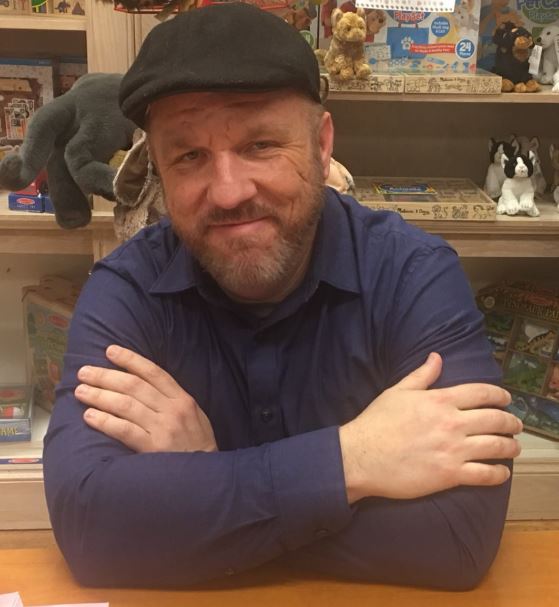‘World On Fire’: Slash Discusses New Solo Album, Gibson Les Pauls and Guns N’ Roses
All the latest guitar news, interviews, lessons, reviews, deals and more, direct to your inbox!
You are now subscribed
Your newsletter sign-up was successful
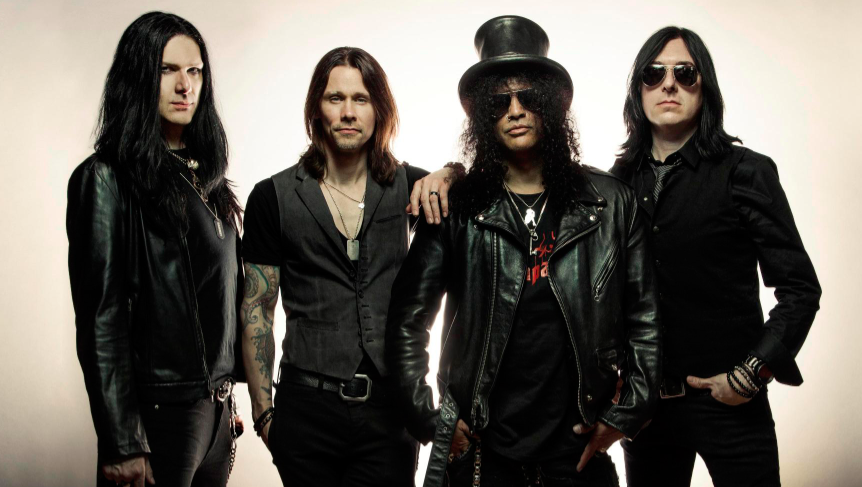
Over the course of his illustrious career—one that includes time in Guns N’ Roses, Slash’s Snakepit and Velvet Revolver—Slash has amassed album sales of more than 100 million, garnered a Grammy (to go with his seven nominations) and was recently inducted into the Rock and Roll Hall of Fame.
Slash also has seen plenty of success with his solo albums. Both his Slash and Apocalyptic Love offerings landed in the top five of the Billboard albums chart.
World On Fire, which will be released September 16, is Slash’s second album with his official band, the Conspirators, which features Myles Kennedy (vocals), Brent Fitz (drums) and Todd Kerns (bass).
From the infectious up-tempo aggressiveness of the album’s title track to the sexual politics of songs like “Battleground," “Dirty Girl” and the coming-of-age “Bent To Fly," the 17-song opus delves into a wide range of topics. World On Fire also features a rocking instrumental, “Safari Inn.”
Produced by Michael “Elvis” Baskette (Alter Bridge, Falling In Reverse, Incubus), World On Fire is a diverse record that covers a multitude of musical feels with a rawness and energy that’s reminiscent of Slash’s early work with Guns N’ Roses.
Make no mistake about it: World On Fire is not a solo project. It was recorded by a band with all four members contributing their strengths as a whole.
Slash is touring with Aerosmith on the “Let Rock Rule” tour. I recently spoke with him about World On Fire, touring, his love of Les Pauls and, of course, some of the most memorable moments from his career.
All the latest guitar news, interviews, lessons, reviews, deals and more, direct to your inbox!
GUITAR WORLD: One of the first Guns N’ Roses tours was with Aerosmith in 1988. What are some of the differences touring with them now as opposed to then?
That was the tour GNR really broke through on. Obviously I’m in a different band now, but the road trips and venues are pretty much the same. It was a blast then and it’s a blast now. I do know I’m not as fucked up as I was! [laughs]. We were at the height of our debauchery back then.
World On Fire feels similar to Appetite For Destruction in terms of its rawness. Was that your intention?
There was never any real etched-out intention. It was really just to go in and do the songs. I think a lot of the rawness comes from Mike Baskette [producer] really knowing what the album should sound like and what we were trying to achieve as a rock band.
The sonic landscape has completely changed in the recording world. Mike really cut his teeth working as an engineer in the studio trying to record rock and roll the way that it should be. I think it was a relief for him be able to work with a band that was actually going to play through the songs and then be able to use his own chops to achieve what the band sounds like. It was a really good pairing.
What are some of the differences recording live to tape as opposed to digital?
The main thing is the warmth of the drums and the amplifiers. Capturing that is the main reason for using tape. I know they’ve tried to make plugins that are supposed to sound like tape, but it’s not something they’ve been able to pull off. Two inches is way better sounding.
What’s your writing process like with Myles?
While we’re on the road, I’ll record acoustic/electric ideas into the voice memo recorder on my phone. It’s very laid back, with no pressure to make a hit song or even to try to make a record. It’s just me putting ideas down. I’ll do that through the course of the tour, and at the same time Myles will sing melody ideas into his phone. After the tour is over, we’ll collect the ideas and then I’ll go through all the different musical concepts we’ve created and pick out the ones that sound good.
While Myles is out with Alter Bridge, I’ll go into a rehearsal room with Bret and Todd and start getting the grooves together and send the loose arrangements to Myles. Once Myles is off the road with Alter Bridge, he’ll come in with us and we’ll work out the arrangements and put it all together.
What’s your live setup like these days?
I’m using just a few new Marshall JCM800’s along with a couple of cabinets. I’ve learned a lot about Marshalls over the years and have modified the heads so that they have a bit more gain, but nothing that’s over the top. I want it to retain a lot of the punch.
Why a Les Paul?
Growing up, the guys whose sound I liked typically played Les Pauls, and I think that’s what first drew me to them. I remember the first guitar I ever owned was a Les Paul copy made by a company called Memphis. I had that guitar until it fell apart and then got a late-Seventies BC Rich Mockingbird that became my main guitar. After that, I went through this whole trial-and-error with Strats, Teles and Jacksons and eventually ended up back with a Les Paul. I actually had Steve Hunter’s Les Paul for a while. That was when the honey, flame-top became my thing.
You’ve mentioned in previous interviews that Aerosmith’s Rocks album played a huge role in your early years playing. Can you explain how influential that album was to you?
I remember first hearing Rocks at a party I was at, and it immediately caught my attention. Then shortly after I started picking up guitar, I was exposed to it again and started listening to it over and over. It had this manic, punk rock attitude and a rhythm and blues sleaziness to it. There was something about that particular album that really hit a nerve with me. It was everything—the vocals, the bass and drums, Brad [Whitford] and Joe [Perry]. Their sound really set me off in the direction I wanted to go.
Can you tell me the origin of “Sweet Child O’ Mine”?
After Guns N’ Roses got signed, we had a period where the record company didn’t want us performing live. They just wanted to get us in the studio. A lot of people were scared of the band at the time and didn’t want to work with us. So there was a lot of sitting around.
A management company that was courting us thought they would impress us by putting us up in this really big house in LA—which of course, we totaled! [laughs]. One day Izzy, Duff and I were all sitting on the floor in front of the fireplace in the living room. I had been working on that riff for a while and Izzy and Duff started to play along to it. What we didn’t know at the time was that Axl was upstairs and had apparently overheard us and started writing lyrics.
The next day, we went in to a pre-production session and Axl said, “Hey, play that thing you guys were playing yesterday.” So I started the riff and Izzy had the chord changes and started to play along with Duff and Steven and it all just suddenly materialized. It came together pretty quickly after that.
Duff McKagan has performed a few gigs with Axl’s current lineup of Guns N’ Roses, which leads me to ask: Do you ever foresee a time when you might write and record with Axl again?
People have been speculating about it for years, but I really have a hard time picturing it. There hasn’t been any communication along those lines between he and I. I have a hard time picturing it because I’m always focused on the next show. I’m one of those people who lives in the moment. I don’t look too far into the future and I don’t dwell too much on the past.
What would you say has been the highlight of your career thus far?
There have been a lot of moments dotted all along my career that I would consider memorable. The beginnings of Guns N’ Roses, the gig that that got us the record deal, the first tours with the Cult and Aerosmith, the first Snakepit tour and the beginnings of Velvet Revolver. Those are all moments filled with moments.
Then there’s the Rock and Roll Hall of Fame. For as much as everybody tried to dismiss it at the time, when it finally happened and we actually got up there and did it, it turned out to be a very poignant, memorable and significant experience.
And it just keeps going. We just had a show last night at an arena that was the biggest show we’ve done in the States as a headliner. I appreciate all of them and really take the time to ingest what’s happening while it’s happening. Especially now that I’m not flying drunk all the time! [laughs].
For more information, visit slashonline.com.
James Wood is a writer, musician and self-proclaimed metalhead who maintains his own website, GoJimmyGo.net. His articles and interviews are written on a variety of topics with passion and humor. You can follow him on Twitter @JimEWood.
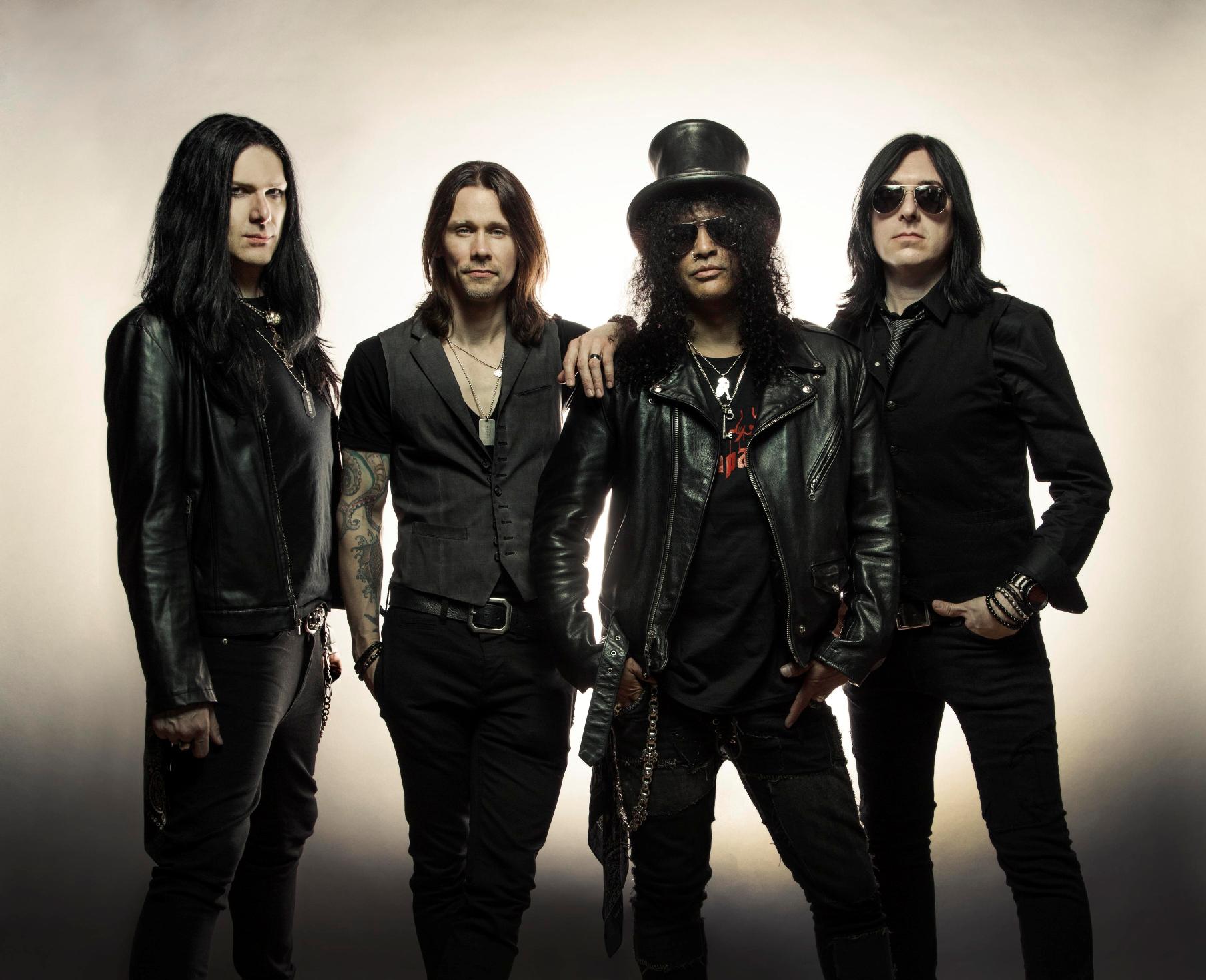
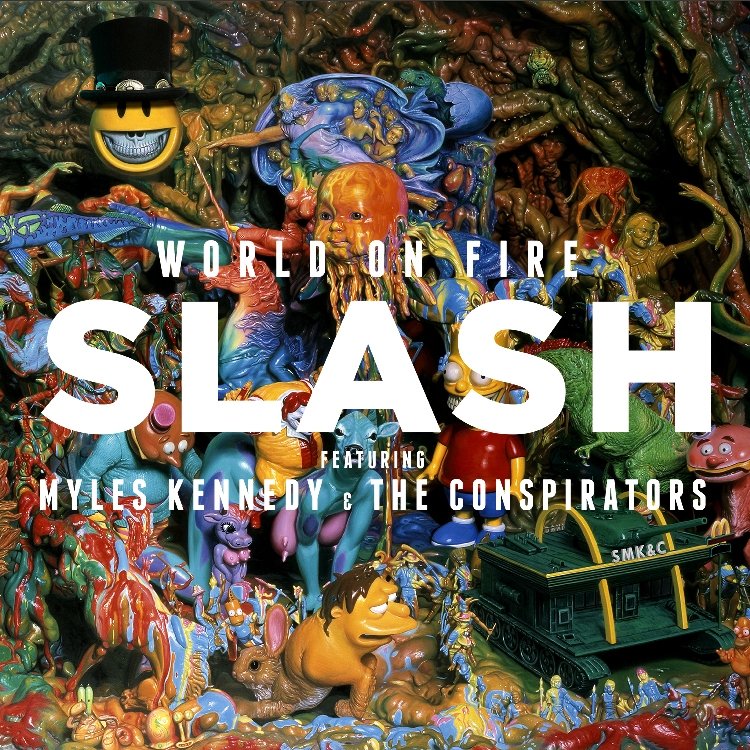
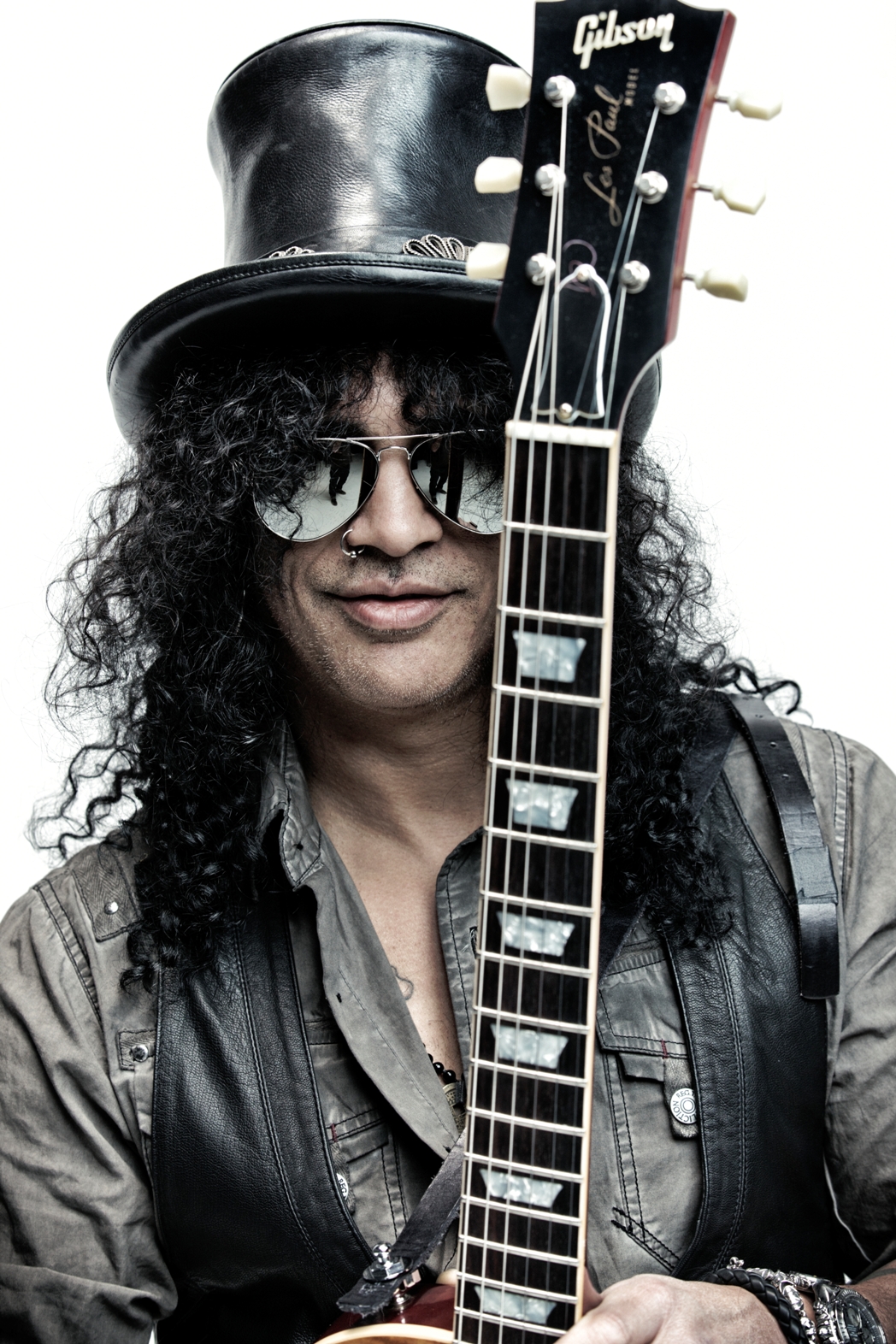
James is a guitarist and freelance writer who's interviewed some of the biggest names in music. He is the author of four books and his writing credits include work for Guitar World, AXS and Yahoo! as well as for his hometown newspaper where he writes on a variety of topics with both passion and humor. As a guitarist, he's performed everywhere from local bars and nightclubs to some of the biggest stages in front of thousands of music fans.
